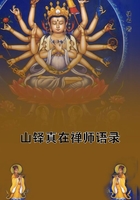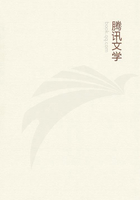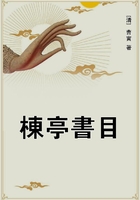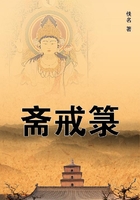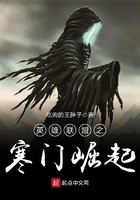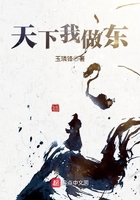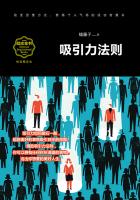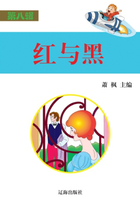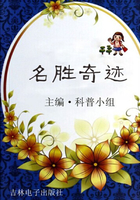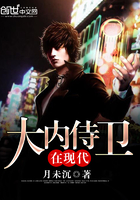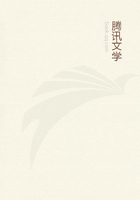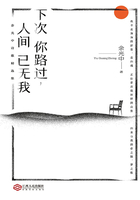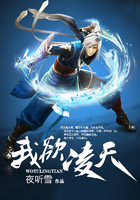And has poetry no end, no eternal and immutable principles? Is poetry, like heraldry, mere matter of arbitrary regulation? The heralds tell us that certain scutcheons and bearings denote certain conditions, and that to put colours on colours, or metals on metals, is false blazonry. If all this were reversed, if every coat of arms in Europe were new fashioned, if it were decreed that or should never be placed but on argent, or argent but on or, that illegitimacy should be denoted by a lozenge, and widowhood by a bend, the new science would be just as good as the old science, because both the new and the old would be good for nothing. The mummery of Portcullis and Rouge Dragon, as it has no other value than that which caprice has assigned to it, may well submit to any laws which caprice may impose on it. But it is not so with that great imitative art, to the power of which all ages, the rudest and the most enlightened, bear witness. Since its first great masterpieces were produced, everything that is changeable in this world has been changed. Civilisation has been gained, lost, gained again. Religions, and languages, and forms of government, and usages of private life, and modes of thinking, all have undergone a succession of revolutions. Everything has passed away but the great features of nature, and the heart of man, and the miracles of that art of which it is the office to reflect back the heart of man and the features of nature. Those two strange old poems, the wonder of ninety generations, still retain all their freshness. They still command the veneration of minds enriched by the literature of many nations and ages. They are still, even in wretched translations, the delight of school-boys. Having survived ten thousand capricious fashions, having seen successive codes of criticism become obsolete, they still remain to us, immortal with the immortality of truth, the same when perused in the study of an English scholar, as when they were first chanted at the banquets of the Ionian princes.
Poetry is, as was said more than two thousand years ago, imitation. It is an art analogous in many respects to the art of painting, sculpture, and acting. The imitations of the painter, the sculptor, and the actor, are indeed, within certain limits, more perfect than those of the poet. The machinery which the poet employs consists merely of words; and words cannot, even when employed by such an artist as Homer or Dante, present to the mind images of visible objects quite so lively and exact as those which we carry away from looking on the works of the brush and the chisel. But, on the other hand, the range of poetry is infinitely wider than that of any other imitative art, or than that of all the other imitative arts together. The sculptor can imitate only form; the painter only form and colour; the actor, until the poet supplies him with words, only form, colour, and motion. Poetry holds the outer world in common with the other arts. The heart of man is the province of poetry, and of poetry alone. The painter, the sculptor, and the actor can exhibit no more of human passion and character than that small portion which overflows into the gesture and the face, always an imperfect, often a deceitful, sign of that which is within. The deeper and more complex parts of human nature can be exhibited by means of words alone. Thus the objects of the imitation of poetry are the whole external and the whole internal universe, the face of nature, the vicissitudes of fortune, man as he is in himself, man as he appears in society, all things which really exist, all things of which we can form an image in our minds by combining together parts of things which really exist. The domain of this imperial art is commensurate with the imaginative faculty.
An art essentially imitative ought not surely to be subjected to rules which tend to make its imitations less perfect than they otherwise would be; and those who obey such rules ought to be called, not correct, but incorrect artists. The true way to judge of the rules by which English poetry was governed during the last century is to look at the effects which they produced.
It was in 1780 that Johnson completed his Lives of the Poets. He tells us in that work that, since the time of Dryden, English poetry had shown no tendency to relapse into its original savageness, that its language had been refined, its numbers tuned, and its sentiments improved. It may perhaps be doubted whether the nation had any great reason to exult in the refinements and improvements which gave it Douglas for Othello, and the Triumphs of Temper for the Fairy Queen.
It was during the thirty years which preceded the appearance of Johnson's Lives that the diction and versification of English poetry were, in the sense in which the word is commonly used, most correct. Those thirty years are, as respects poetry, the most deplorable part of our literary history. They have indeed bequeathed to us scarcely any poetry which deserves to be remembered. Two or three hundred lines of Gray, twice as many of Goldsmith, a few stanzas of Beattie and Collins, a few strophes of Mason, and a few clever prologues and satires, were the masterpieces of this age of consummate excellence. They may all be printed in one volume, and that volume would be by no means a volume of extraordinary merit. It would contain no poetry of the very highest class, and little which could be placed very high in the second class. The Paradise Regained or Comus would outweigh it all.

